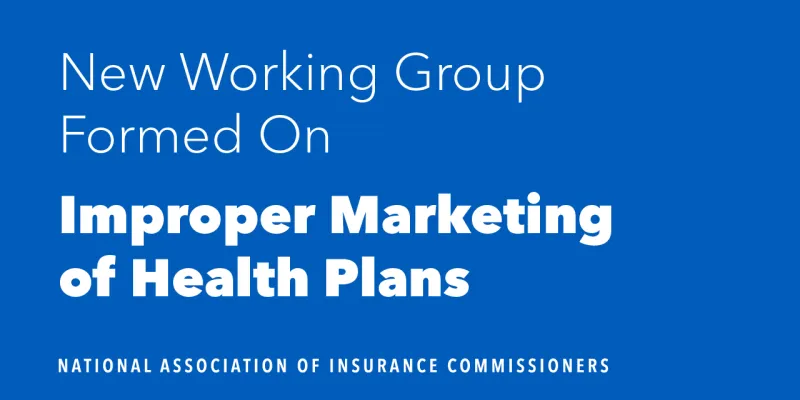
NAIC Forms Working Group to Fight Improper Marketing of Health Plans
The National Association of Insurance Commissioners (NAIC) formed a new working group to address the Improper Marketing of Health Plans. The working group will address the deceptive marketing of health plans and other products that lead consumers to believe they are purchasing comprehensive health coverage when they are really purchasing coverage that does not cover all pre-existing conditions or hospital care.
The Working Group’s official charges include:
- Coordinate with regulators, both on a state and federal level, to provide assistance to and guidance on monitoring the improper marketing of health plans, and coordinate appropriate enforcement actions, as needed, with other NAIC Committees, task forces, and working groups.
- Review existing NAIC models and guidelines, including laws and regulations, that address the use of lead generators for sales of health insurance products and identify models and guidelines that need to be updated or developed to address current marketplace activities.
The Working Group is part of the National Antifraud (D) Task Force, which provides guidance and resources around tracking and analyzing fraud related trends and works with insurance departments, and local state, federal and international law enforcement agencies.
About the National Association of Insurance Commissioners
As part of our state-based system of insurance regulation in the United States, the National Association of Insurance Commissioners (NAIC) provides expertise, data, and analysis for insurance commissioners to effectively regulate the industry and protect consumers. The U.S. standard-setting organization is governed by the chief insurance regulators from the 50 states, the District of Columbia and five U.S. territories. Through the NAIC, state insurance regulators establish standards and best practices, conduct peer reviews, and coordinate regulatory oversight. NAIC staff supports these efforts and represents the collective views of state regulators domestically and internationally.
